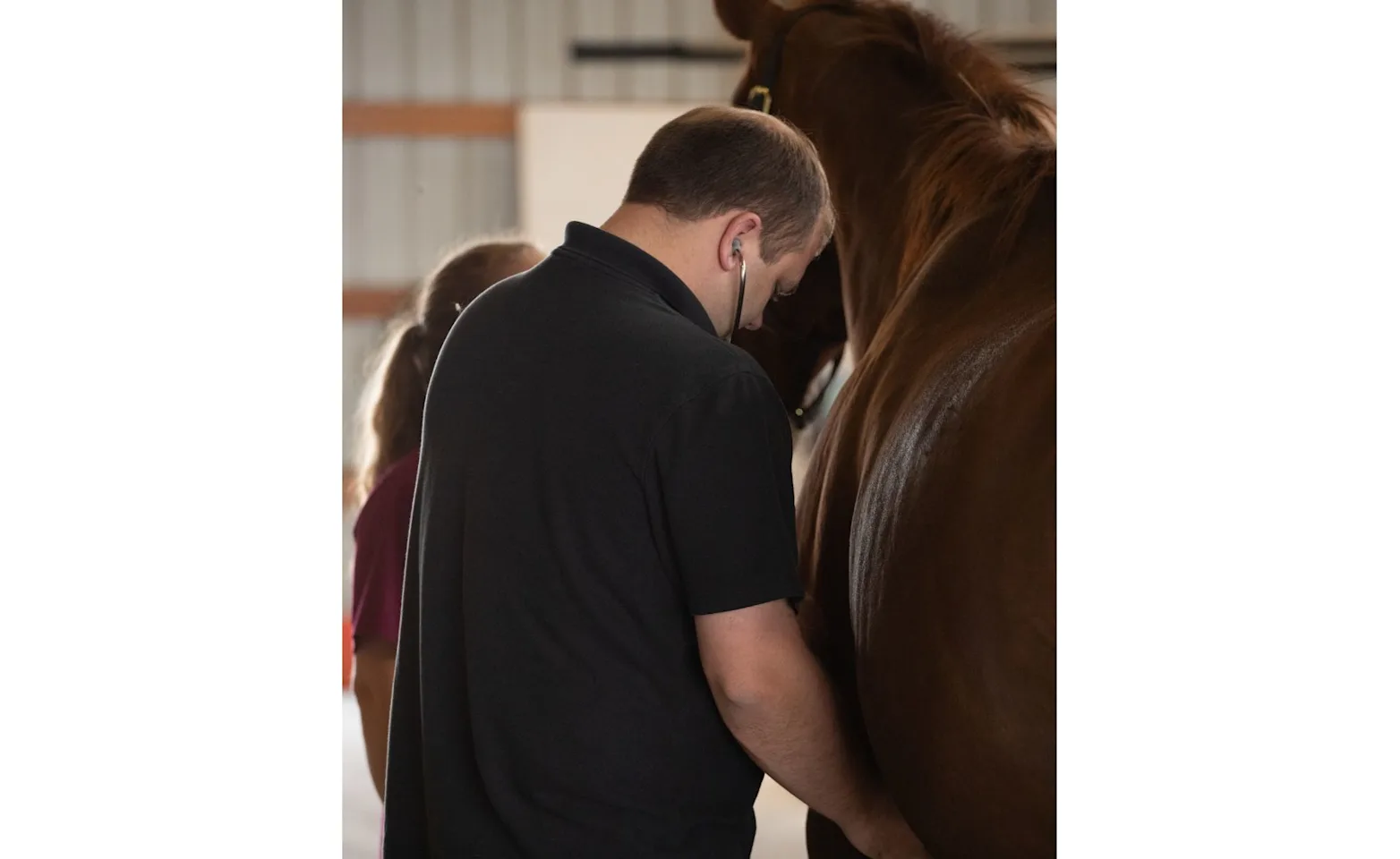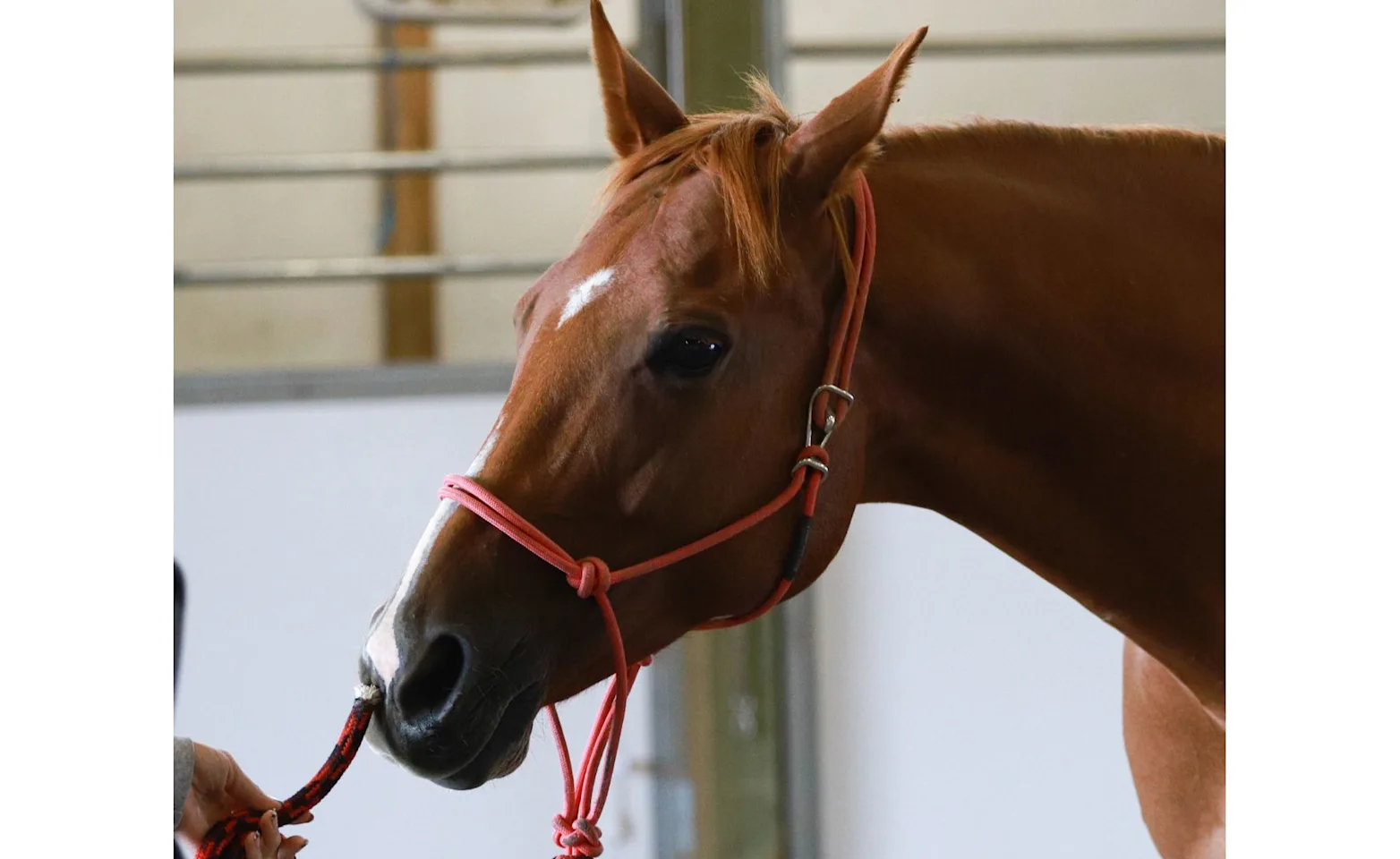McKinlay & Peters Equine Hospital

What Is It?
Colic accounts for the majority of emergency calls we receive. Colic is a general term referring to abdominal pain. Colic symptoms range from horses being off feed, agitated and uncomfortable to violent and relentless thrashing and rolling. Evidence of any such signs should merit a prompt call to veterinarian. Colic can be caused from intestinal gas pain, indigestion, blockage or impaction of feed in the intestine, intestinal displacement, entrapment or twisting of a section of intestine. There are also other causes. Colic which starts out mild and simple may progress to a serious and life threatening problem if not seen promptly and properly. As veterinarians our role is to assess the level of pain and gather information to search for its origin. This is begun by careful gathering of vital signs, a thorough discussion of the horse’s history and often transrectal palpation of the abdomen. Colic care often involves medication, nasogastric intubation and drenching, analysis of abdominal fluid, ultrasonography, blood work, hospitalization and intravenous fluid therapy.

Prevention
Preventing colic is accomplished by a number of means, most having to do with good husbandry. Regular and consistent feeding times, consistency of feed quality and quantity, exercise, ready access to clean fresh water, routine and proper dental care, and regular anti-parasitic treatment are all part of successful management. Your particular circumstance may necessitate other means. Your horse may be exhibiting some of these symptoms if he is experiencing a bout with colic: Depressed, rolling, kicking and/or biting at their belly, restless, may or may not be off their feed. If they are rolling, it is best to keep them on their feet by quietly hand walking them. If they are lying quietly, let them rest. Remove any sources of feed: mangers, pasture, etc. Have they recently passed any manure? If so, is it normal, dry or runny? Take their vital signs – heart rate, respiration rate, temperature and take a peek at their gums – color & moistness. Check their capillary refill time by pressing your finger into the gum above their incisors and note how long it takes to pink back up. Do not give any pain medication until you have talked with the veterinarian. It is our goal to respond to colic pain promptly and properly. If this course is followed we have the best chance of avoiding serious problems and of returning your horse to its normal happy existence and work!
